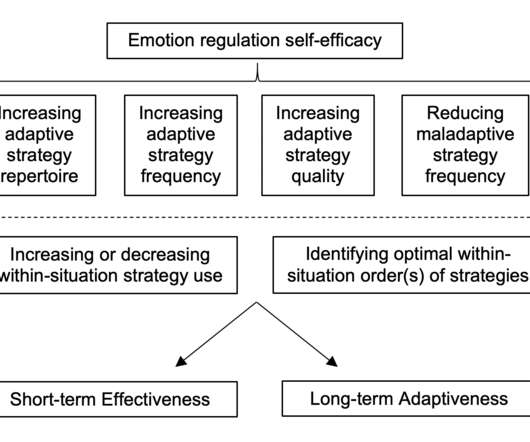Mental wellbeing can, and should, be assessed in clinical samples
Society of Clinical Psychology
MAY 5, 2022
Before you continue reading this blog, take a moment and reflect for one moment: what do you, as a clinical psychologist, use as a criterion for recovery or therapy success? What would it mean for clinical psychology if we maintained an intentional focus on both treating mental illness and promoting mental wellbeing?














Let's personalize your content